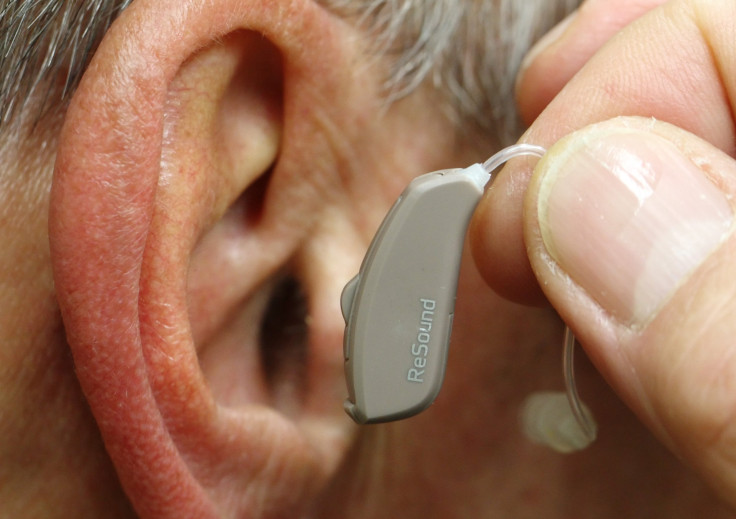Why Do We Lose Hearing? Loud Music Means More Americans Won't Be Able To Hear By 2060, Study Warns

Hearing loss might almost double in the coming decades for those living in the U.S. The increase would most likely happen by 2060, researchers at Johns Hopkins University in Baltimore said Thursday.
By 2020, 55 percent of all adults with hearing loss will be 70 or older. In 2060, that rate will increase to 67 percent. Those who are 20 and older, are also expected to see a hearing loss increase -- from 44 million in 2020 (15 percent of adults) to 73.5 million by 2060 (23 percent of adults), according to the researchers' study titled "JAMA Otolaryngology–Head & Neck Surgery."
“In the coming decades, there will be an increased need for affordable interventions and access to hearing health care services,” said author Adele Goman, a research fellow at Hopkins’ Center on Aging and Health.
Goman and her associates used data from the U.S. National Health and Nutrition Examination Survey to calculate future hearing loss among Americans. “Hearing loss is a major public health issue that will affect many more adults,” she said. “In order to address this issue, novel and cost-effective approaches to hearing health care are needed.”
However, Dr. Debara Tucci, a spokesperson for the American Academy of Otolaryngology, Head and Neck Surgery, told CBS News that age isn’t necessarily a factor when it comes to hearing loss. She said hearing loss is caused by long-term exposure to loud music or noisy environments.
“Care should be taken to limit the volume of sound from headphones and limit the exposure to the sound of firearms used at ranges or while hunting and protect oneself from industrial noise at work,” Tucci said.
She advised people to protect their hearing early. “Hearing loss is a slow, insidious process, and changes can occur over many years that are not reversible,” she said.
The study also found that adults would benefit by using hearing aids, but they must get tested first.
“I would recommend [testing] when you are 55 to 60 to see if there is any hearing loss. People should not take hearing loss for granted as they get older. There are ways to prevent and treat hearing loss,” Tucci said.
The authors said based on these projections, policymakers, and public health researchers should start planning “appropriately for the future,” mainly to reduce hearing loss or find out ways to treat and prevent it.
© Copyright IBTimes 2025. All rights reserved.






















